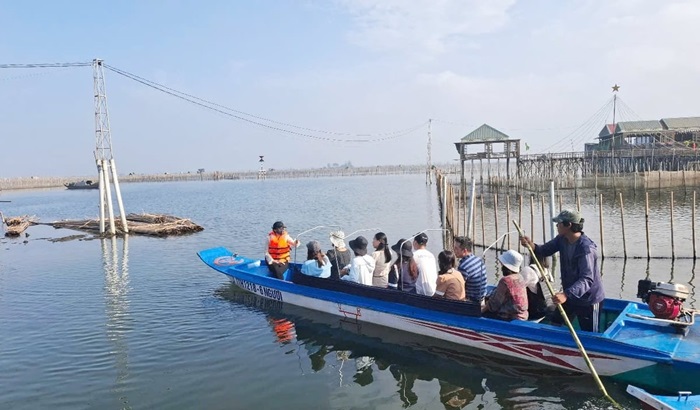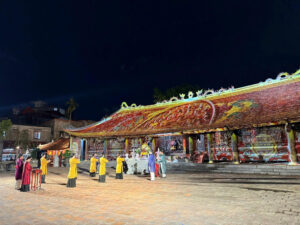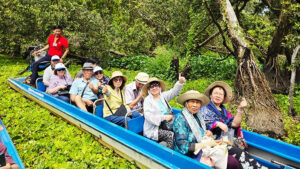The ‘cap sac’ ritual of the Dao ethnic group, which is recognised as a national intangible cultural heritage, is an important ritual for every Dao ethnic man, as it declares his coming-of-age and affirms his role in the family and the community. The ritual has been well preserved for generations among the Dao Tien ethnic community, in the northern province of Bac Kan.
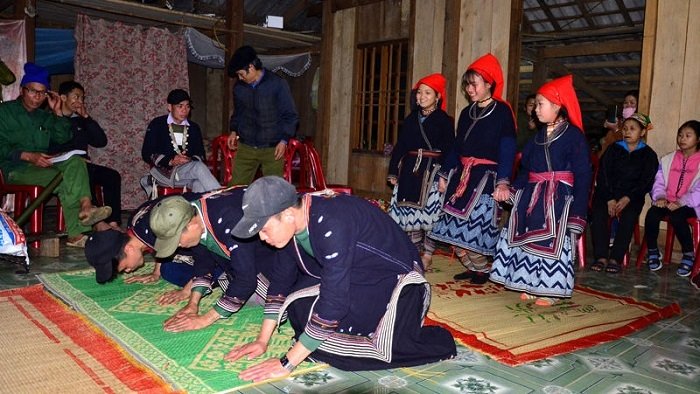
The ‘cap sac’ ritual is an important ritual for every Dao ethnic man (Photo: backan.gov.vn)
The origin of the ‘cap sac’ ritual is explained through a folktale, which explains once upon a time, the Jade Emperor sent heavenly fighters to teach magic powers to Dao ancestors, to help them fight against devils. The Dao ancestors held the ‘cap sac’ ritual, to pass on its magic powers to the men within the community, so that they can protect their families. The “cap sac” ritual was formed and since then has been practiced for generations.
Like other boys in the village, the coming-of-age ritual is an important turning point of Ban Huu Tai, a Dao ethnic sixth-grader in Na Hin commune, Quang Thuan commune, Bach Thong district. Ban Van Bo, Tai's father, said that only by undergoing the ‘cap sac’ ritual, a son of the Dao can gain the recognition of the community and become a good person.
To prepare for his son’s ‘cap sac’ ritual, Bo called on the help of his family members. The most important step is inviting a shaman and performers for the ritual.
“I passed the ‘cap sac’ ritual when I was 13-years-old, now I am happy that my 12-year-old son will soon undergo this important ritual,” Bo said.
After the proceedings, he believes that his son will grow up faster and become more mature, to handle major issues within the family and protect them.
Before the ritual, Tai had to practice ritual dances for the event. He said with a little nervousness, that his parents have told him about the ‘cap sac’ rituals many times and he felt both proud and anxious. Many of his friends have not gone through the proceedings yet, so he was afraid that he might not make it.
“Brothers in the village told me that after the ritual, I will grow faster and can help out my parents,” Tai said.
The coming-of-age ceremony lasts one day and two nights and is often staged in the first, eleventh, or twelfth lunar month, of the year when locals enjoy free time after the harvest.
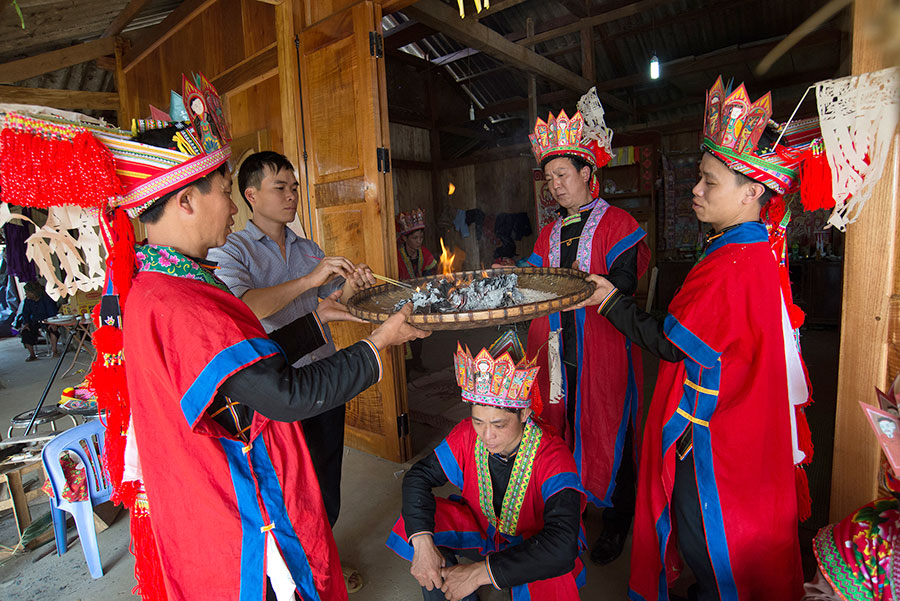
A ritual at the 'cap sac' ceremony (Photo: qdnd.vn)
On the day the ritual took place; Tai’s house attracted many people. When night fell, the ceremony began with ritual dances and the presentation of offerings. At 9 PM, the shaman announced the official opening of the ‘cap sac’ ritual. At midnight, Tai, dressed in traditional costumes of the Dao ethnic people, engaged in ritual dances with three flaming candles, placed on top of his head and both shoulders.
At 4 AM the next morning, Tai was allowed to rest, had a light meal, and went to bed, while the ritual continued until the sky became bright.
Following the ceremony, the family and participants joined a party, in celebration that the village now had one more “pillar”. They also delivered ‘pao dung’ folklore songs and playing folk games.
According to Chairman of Quang Thuan Commune People's Committee Nong Van Binh, Bac Kan province is now home to more than 56,000 Dao ethnic people, accounting for more than 20% of the province's population.
The Dao Tien ethnic people throughout the commune, have paid great attention to preserving their traditional cultural practices, including the ‘cap sac’ ritual. He asserted that the local authorities always encourages and create favourable conditions, for the locals to safeguard and promote their cultural identities.
The ‘cap sac’ ritual helps to educate sons of the Dao ethnic group, about the cultural values of their ancestors, thus raising their gratitude to the ancestors and the gods. The ceremony also offers an opportunity to gather villagers and consolidate the neighbourhood and the solidarity within the community.


